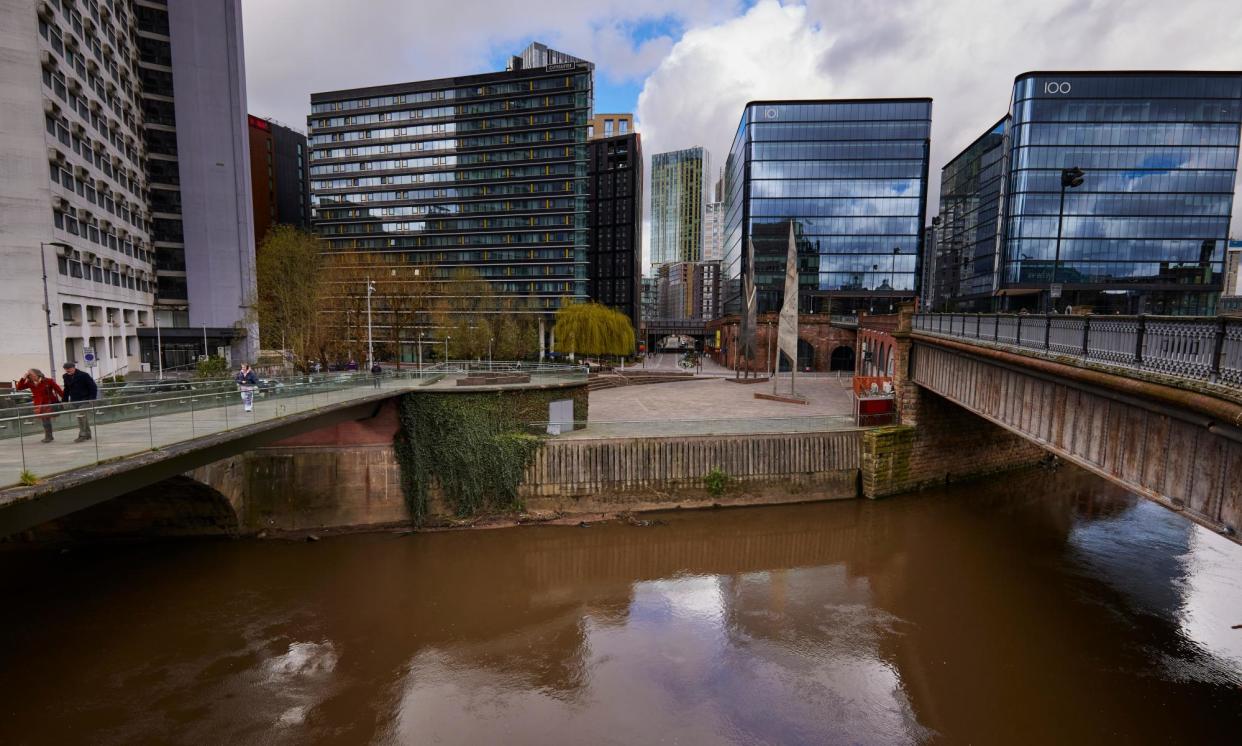‘Would you swim in that?’: Salford residents and visitors bemoan contaminated river

“Look at that. It’s minging,” says Daisy McDonnell, an accountant living next to the River Irwell in Salford, who is not surprised to find out that she lives in the most sewage-filled river catchment in England.
In 2022, there were 7,168 sewage spills into the Croal Irwell catchment area, according to Environment Agency data analysed by the Guardian. In 2023, this had risen to 11,974, the highest rate of all English rivers when accounting for length, at 95 spills per mile.
McDonnell says the public should definitely get more of a say in how much sewage is discharged into public waterways. “More needs to be done,” says her housemate and fellow accountant, Charlotte Law. “But how do you go about sorting it out?”
As well as providing scenery for two major cities, the Irwell, which divides Manchester and Salford, and its tributary, the Croal, are popular rivers for rowers and the scene of a number of regattas in summer.
Since the industrial revolution, when the Irwell was severely polluted, efforts have been made to clean up the river and restock it with wildlife. It is now home to populations of fish, such as roach, bream and chub, and birds including grey herons, cormorants and kingfishers. But this nature is threatened by the dumping of sewage, which depletes oxygen levels in the water.
“There’s life in the water, it’s not just outside of it,” says Paola Constancio, on holiday in Manchester from Banbury, with her partner, Cosmin Morar. She says the sewage discharged into English rivers is emblematic of a wider lack of respect for our waterways.
“It’s bad. We just saw a piece of tyre up there,” she says, pointing upriver.
The Irwell is far from alone, the data revealed. 2023 was the worst year on record for storm water pollution: overflows spilled raw sewage into England’s rivers and seas for a total of 3.6m hours.
The north of England, where eight of the top 10 worst-faring catchments were located, had the worst sewage discharge levels.
United Utilities, which serves the region, has been the focus of much of the criticism. It says it plans to spend more than £3bn from 2025, with the goal of a 60% reduction in spills by 2030. “This money will help improve more than 300 miles of river, ranging from the River Kent in Cumbria to the Irwell, which flows through counties of Lancashire and Greater Manchester,” a spokesperson said.
But for Steve Chadwick, who lives in Staffordshire but works in Manchester in logistics, the problem is caused by how utilities have been used as commercial enterprises. “This is the cumulation of decades of underinvestment,” he says. “We need a change of government and it would be nice to see utilities taken into public ownership.
“Looking around to places like Manchester Cathedral just here, things used to be built with the future in mind and designed to last. Now everything is a sticking plaster with eight extra zeros on the end.”
He is concerned that this summer there will be a return of blue-green algae, a type of bacteria that can overwhelm a waterway, coating the surface of the water with a green film that blocks out light, killing the wildlife below. He says: “What will be left when there’s a heatwave and when the water levels drop?”
The Boardman family, who live in Warrington near where the Irwell feeds into the Mersey, say poor quality waterways are hurting the UK’s cities. “We want to be home to the top cities in Europe, but I don’t see how that can happen when we’re not doing more to tackle it,” says Shaun Boardman.
His wife, Karen, says it would be nice for children to be able to swim and paddle in the water on warm days. “But you don’t know if it’s toxic or if there are fumes. It’s awful,” she says.
She turns to her 10-year-old son Billy, saying: “Would you swim in that?”
“No,” he says.


